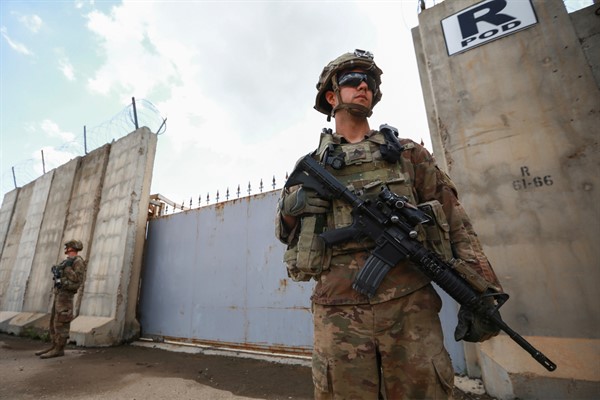Editor’s Note: This is the web version of our subscriber-only weekly newsletter, Middle East Memo, which takes a look at what’s happening, what’s being said and what’s on the horizon in the Middle East. Subscribe to receive it by email every Monday. If you’re already a subscriber, adjust your newsletter settings to receive it.
Sunday’s overnight air strikes by the U.S. on militia targets in Iraq and Syria immediately rekindled an important debate about deterrence and sovereignty, but also the frustrating persistence of America’s “forever wars.”
How should America handle militia attacks on its forces in Iraq, a country where U.S. forces are based at the invitation of a sovereign government? And will American military retaliation actually change the behavior of the armed factions that operate in defiance of the Iraqi government and with support from Iran?

